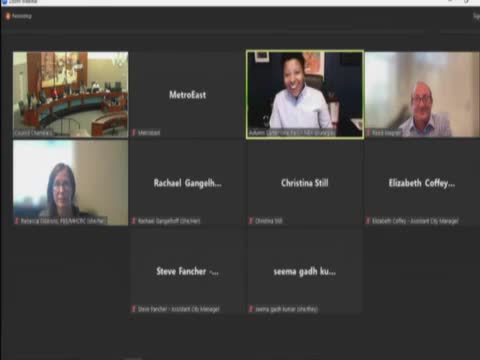Commission faces funding crisis as cable subscriptions plummet
September 03, 2024 | Gresham, Multnomah County, Oregon
This article was created by AI summarizing key points discussed. AI makes mistakes, so for full details and context, please refer to the video of the full meeting. Please report any errors so we can fix them. Report an error »

In a recent government meeting, the Multnomah County Home Rule Charter Commission (MHCRC) outlined its evolving role and the challenges it faces in the rapidly changing telecommunications landscape. Established over 30 years ago primarily as a cable regulator, the MHCRC has expanded its responsibilities to include advocacy for public interests, management of public benefit resources, and support for community media initiatives.
The commission highlighted its three core functions: negotiating and enforcing cable service franchise agreements, managing public benefit resources derived from these agreements, and advocating for policy issues at local, state, and federal levels. A significant source of funding for community media comes from Public Education and Government (PEG) fees, which are collected from cable companies based on their gross revenues from TV services. These funds support local media centers that provide training and broadcast government programs, ensuring that community voices are represented alongside national news.
Rebecca, a representative from the commission, discussed the financial dynamics impacting the industry, noting a decline in traditional cable TV subscriptions and the subsequent decrease in franchise and PEG fees. This trend is compounded by the rise of broadband providers like Ziply, which focus primarily on internet services rather than traditional cable offerings. The commission is actively addressing these shifts, advocating for consumer protection and equitable access to high-speed internet for public institutions.
The meeting also touched on broader policy issues, including net neutrality and the potential rewriting of the Cable Act, which could further affect local authority over franchise fees. With projections indicating significant investments in rural broadband deployment, the commission expressed concern over the lack of universal build-out requirements in urban areas, which could lead to disparities in service quality and availability.
As the MHCRC prepares to adapt its operating budget and support for community media services, it remains committed to ensuring that local news and cultural representation are maintained in an increasingly digital and fragmented media environment. The commission's proactive approach aims to navigate the challenges posed by declining cable subscriptions and evolving industry dynamics, ensuring that community needs continue to be met.
The commission highlighted its three core functions: negotiating and enforcing cable service franchise agreements, managing public benefit resources derived from these agreements, and advocating for policy issues at local, state, and federal levels. A significant source of funding for community media comes from Public Education and Government (PEG) fees, which are collected from cable companies based on their gross revenues from TV services. These funds support local media centers that provide training and broadcast government programs, ensuring that community voices are represented alongside national news.
Rebecca, a representative from the commission, discussed the financial dynamics impacting the industry, noting a decline in traditional cable TV subscriptions and the subsequent decrease in franchise and PEG fees. This trend is compounded by the rise of broadband providers like Ziply, which focus primarily on internet services rather than traditional cable offerings. The commission is actively addressing these shifts, advocating for consumer protection and equitable access to high-speed internet for public institutions.
The meeting also touched on broader policy issues, including net neutrality and the potential rewriting of the Cable Act, which could further affect local authority over franchise fees. With projections indicating significant investments in rural broadband deployment, the commission expressed concern over the lack of universal build-out requirements in urban areas, which could lead to disparities in service quality and availability.
As the MHCRC prepares to adapt its operating budget and support for community media services, it remains committed to ensuring that local news and cultural representation are maintained in an increasingly digital and fragmented media environment. The commission's proactive approach aims to navigate the challenges posed by declining cable subscriptions and evolving industry dynamics, ensuring that community needs continue to be met.
View full meeting
This article is based on a recent meeting—watch the full video and explore the complete transcript for deeper insights into the discussion.
View full meeting
